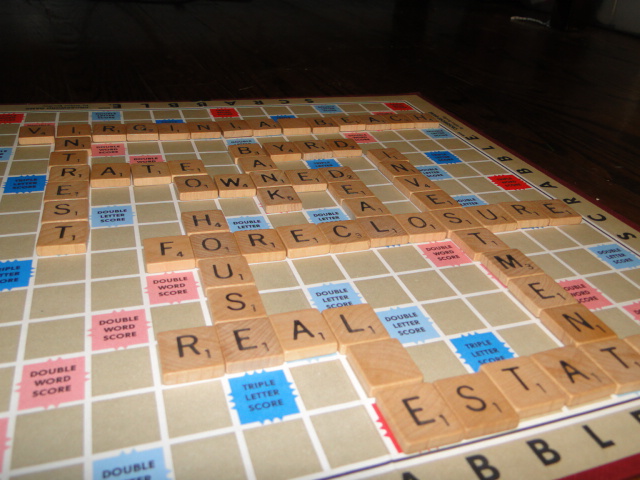What Homeowners Should Know Before Considering a Short Sale

In recent months, more homeowners have been asking a question that many people have not heard in quite some time: What is a short sale?
That question alone tells us something important. Real estate markets move in cycles. While no two cycles are ever identical, experienced professionals recognize familiar patterns. After years of strong appreciation, rising interest rates, inflation, job changes, and shifting economic pressures can place some homeowners in difficult positions. When that happens, options like a short sale re-enter the conversation.
If you are feeling uncertain about your current situation—or simply want to understand your options—this guide is designed to help. Our goal is not to pressure you, but to educate, clarify, and guide you toward the best possible decision for your circumstances.
So, What Is a Short Sale?
A short sale occurs when a homeowner sells a property for less than the total amount owed on the mortgage, and the lender agrees to accept that reduced payoff as full satisfaction of the loan.
In other words:
- The home is sold.
- The sales price does not fully cover the mortgage balance.
- The lender agrees to the “shortfall.”
Without lender approval, a short sale cannot happen. The lender must review the situation and formally agree to accept less than what is owed.
Why Would a Lender Agree to a Short Sale?
This is often the first question homeowners ask—and understandably so.
Lenders are not in the business of owning property. Managing, maintaining, insuring, and reselling homes through foreclosure can be expensive and time-consuming. Depending on the state, foreclosure timelines may stretch many months or even years, increasing costs and uncertainty for the lender.
A properly structured short sale can:
- Reduce the lender’s losses
- Avoid the expense of foreclosure
- Allow the property to be sold in its current condition
- Bring a faster and more predictable resolution
When presented correctly, a short sale may be the least costly option for the lender.
A Critical Benefit: You Pay No Real Estate Commission
One important detail that surprises many homeowners is this:
In a short sale, the lender typically pays the real estate commissions.
Because the seller owes more than the home is worth, commissions and approved closing costs are generally paid from the proceeds as part of the lender’s approval. This allows homeowners to receive professional representation without additional out-of-pocket expense for agent fees.
Why Preparation Matters So Much in a Short Sale
Short sales are not standard transactions. They require planning, documentation, and strategy.

Over the years—particularly following the financial crisis—we learned that successful short sales are built long before the closing table. We approach the process much like an attorney prepares a case.
In simple terms:
- The lender is the decision-maker
- The homeowner’s situation must be clearly demonstrated
- The market value must be fully supported
Our responsibility is to present a complete, accurate, and compelling case.
The Two Things Every Lender Needs to See
For a short sale to be approved, two critical elements must be established:
1. A Legitimate Financial Hardship
The lender must see that continuing to make mortgage payments is no longer sustainable. This is not about poor planning or inconvenience—it is about a real change in circumstances.
2. The Home Was Sold for the Best Possible Price
The lender must be confident that the home was exposed to the market appropriately and that the offer represents fair market value.
When these two points are clearly documented, the chances of approval increase significantly.
Understanding Financial Hardship
Each lender has specific guidelines, but in general, hardships are situations that significantly affect income, expenses, or both.
Some commonly accepted hardships include:
- Job loss or reduction in income
- Job relocation or transfer
- Divorce or separation
- Death of a spouse or primary income earner
- Medical expenses or health-related income changes
- Military transfer
This list is not exhaustive. Every situation is unique, and hardship is evaluated on a case-by-case basis. What matters most is that the documentation clearly explains why the mortgage is no longer affordable.
Short Sale Paperwork: Think “Mortgage in Reverse”
One of the best ways to understand the process is to think of it as applying for a mortgage in reverse.

Instead of proving you can afford the home, you are demonstrating that you cannot continue under the current terms.
Typically, lenders require:
- Financial statements
- Income documentation
- Tax returns
- Bank statements
- A written hardship explanation
- Authorization forms
- A fully executed sales contract
This paperwork allows the lender to assess the situation objectively. While the process can feel overwhelming, having experienced guidance makes it manageable and organized.
The Timeline: What to Expect
Short sales take longer than traditional sales. While timelines vary, most short sales fall into a general range of several months from contract to closing.
Key stages include:
- Listing and marketing the home
- Securing a qualified buyer
- Submitting the complete short sale package
- Lender review and negotiation
- Approval and closing
Clear communication, complete documentation, and realistic expectations are essential throughout the process.
Is a Short Sale Better Than Foreclosure?
For many homeowners, a short sale may be a more favorable alternative than foreclosure. While every situation is different, a short sale can:
- Provide more control over the outcome
- Reduce long-term credit impact compared to foreclosure
- Allow a more orderly transition
- Offer dignity and clarity during a difficult time
We always recommend consulting with legal and tax professionals to understand how a short sale may affect your broader financial picture.
What About Buyers Considering a Short Sale?

Short sales can also represent opportunities for buyers, but patience and flexibility are required. Buyers should understand that:
- Lender approval is required
- Timelines may be extended
- Terms may change during negotiation
Having knowledgeable representation on both sides helps transactions move forward with fewer surprises.
Professional Guidance Is Essential
Short sales involve lenders, attorneys, buyers, and extensive documentation. Without proper guidance, delays and denials are common.
Our team has handled short sales through multiple market cycles. That experience allows us to:
- Anticipate lender requirements
- Prepare complete and accurate submissions
- Communicate clearly with all parties
- Advocate for our clients every step of the way
Experience matters—especially when the outcome affects your financial future.
Taking the First Step
Every short sale begins with a conversation.
We start with a confidential consultation to:
- Review your unique situation
- Discuss available options
- Determine whether a short sale is appropriate
- Outline next steps with clarity
If we decide to move forward together, we guide you through the process from start to finish.
Frequently Asked Questions About Short Sales
A hardship is any significant change that makes your mortgage unaffordable. Each lender evaluates this individually.
This depends on lender approval and loan terms. Some lenders forgive the remaining balance; others may not. Professional advice is recommended.
Most short sales take several months, depending on lender response times and documentation.
In many cases, yes—but timing and loan eligibility vary. Planning ahead is important.
Not always. Some lenders approve short sales before foreclosure proceedings begin.
We’re Here to Help
If you or someone you know is considering selling a home as a short sale, or buying one, we are here to help guide you with clarity and care.
You can call us directly at 843-972-7670, or complete the form below and we will reach out to you. Our role is to help you understand your options and move forward with confidence.

The Authors…
Bill Byrd is a Real Estate Wealth Advisor with deep experience helping property owners navigate complex and distressed real estate situations. Licensed since 1986, Bill has guided individuals and families through multiple market cycles, including the previous housing crisis, where clear strategy, patience, and careful decision-making were essential. His background includes working with distressed properties, short sales, estate situations, and investment assets where the right approach can significantly impact long-term outcomes.
As a husband, father, educator, musician, and athlete, Bill brings a balanced, thoughtful perspective to his work. He collaborates closely with his daughter, Waverly Byrd, on every transaction, combining experience, local market insight, and consistent communication. Clients facing challenging real estate circumstances value Bill’s steady approach, practical guidance, and long-standing commitment to helping people use real estate as a tool to protect and grow personal wealth.
